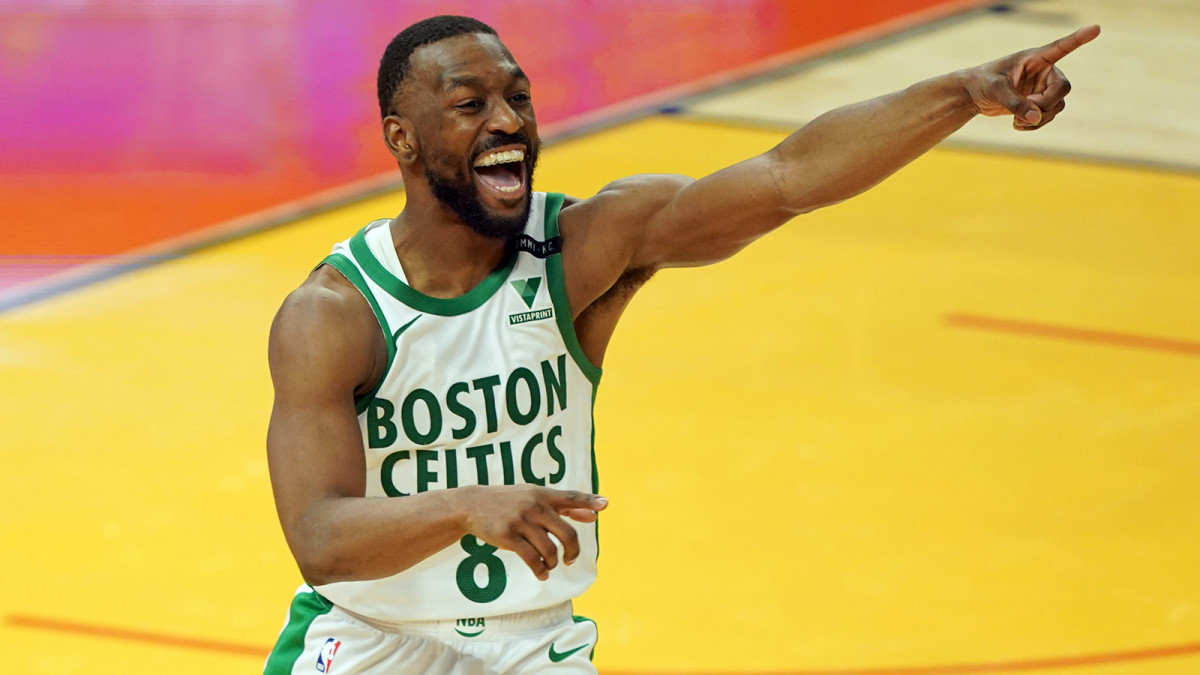Grading the Kemba Walker Trade

The Celtics and Thunder struck the first deal of the offseason Friday morning, agreeing to exchange Kemba Walker, the No. 16 pick in the upcoming draft and a 2025 second-rounder for Al Horford, Moses Brown and a 2023 second-rounder, as reported by ESPN’s Adrian Wojnarowski.
While the move sees former All-Stars Walker and Horford change teams (the latter returning to Boston, where he played from 2016-2019), the primary angle here for both teams is creating flexibility. Walker has $73 million left on a contract that had come to weigh down the Celtics’ cap sheet. Horford appeared in just 28 games last season, with the Thunder choosing to develop younger talent instead, and should have a chance to contribute again in Boston. Let’s break down the deal for both sides.
Boston: B-
It’s hard to fault Boston for moving on from Walker, whose contract had become the Celtics’ most expendable chunk of salary with Jayson Tatum’s max extension kicking in next season. The 31-year-old Walker has dealt with knee injuries for much of the last two years that limited his availability, and has two years left on his contract, including a $37.6 million player option for 2022-23. Noting his age and signs of physical decline, it made sense for Boston to move on now as they reorient their roster around the 22-year-old Tatum and 23-year-old Jaylen Brown. After a first-round playoff exit, Danny Ainge stepping down, and Brad Stevens and Mike Zarren taking the lead on basketball operations, this became a logical juncture for the Celtics to re-evaluate their roster.
While it doesn't make them more competitive at face value, moving on from Walker gives them more flexibility to shuffle the deck moving forward. Horford is 35, but should enter next season well-rested and is owed far less money over the next two seasons, with $27 million guaranteed next year and a partial $14.5 million guarantee for 2022-23. (In otherwords, Boston saves more than $30 million here). While it may be hard to deal Horford again, he also helps the Celtics address the center position, which has been something of a revolving door since he left. Moses Brown flashed signs of real development last year and comes on an extremely inexpensive contract, giving Boston another option at the five, with the promising Robert Williams figuring to inherit a larger chunk of minutes to start next season. What this means for veteran Tristan Thompson, entering the final year of his deal, is unclear.
The price of doing business for Boston is ceding the No. 16 pick, which made the prospect of taking on Walker’s contract more palatable for Sam Presti and the Thunder, who continue to rebuild through the draft. It’s a fairly valuable selection, landing outside the lottery but somewhere in the value sweet spot of this year’s draft class. The Celtics are still developing their recent draft picks at all five positions and don’t necessarily need to get younger, making this a reasonable pick to sacrifice in exchange for greater optionality moving forward. The real worth of this trade will eventually hinge on what they decide to do next. But it's defensible, and not as earth-shaking as you'd think.

Oklahoma City: B+
The Thunder have positioned themselves to make trades like this for a reason: they believe in playing the draft, they’re not interested in rushing back to the playoffs, and they’ve filled out their roster with as much inexpensive young talent as possible. It enables them to take on Walker’s albatross contract in the short-term, with the hope almost certainly being to help rehabilitate his value before trading him to another team.
Considering how diminished Walker’s market value has clearly become, it’s unclear if he’ll change teams again before next season, barring some stroke of wizardry by Sam Presti. But at full strength, Walker remains one of the league’s most dynamic ball-screen guards. While his health and hefty contract gave him negative trade value in the moment, there’s certainly a potential future where he returns to top form and becomes an attractive short-term addition for a playoff team. That would enable the Thunder to eventually profit, presumably in the form of more draft picks. They pulled it off with Chris Paul, and will try to repeat history. Walker isn’t a perfect fit with Shai-Gilgeous Alexander, but he doesn’t figure to be in Oklahoma City for too long.
Oklahoma City now owns three first-round selections going into next week’s lottery: in addition to No. 16 and its own selection, the Thunder will either receive the No. 18 pick, or they’ll get the Rockets’ pick if it falls to No. 5. They own a ridiculous 18 first-round picks in the next seven drafts. They’ll kick every can down the road for as long as they have to, clearly. And when you have the leeway of a long runway and realistic expectations, as Presti clearly does, you can mine value pretty much any way you want.
More NBA Coverage:
• How the Suns Mastered the Pick-And-Roll
• Inside Jeff Green's Long Road to Brooklyn
• No One's Like Giannis, But That's A Blessing and A Curse
• Hawks' Resilience Shines Through Once Again in Second Straight Comeback Win
